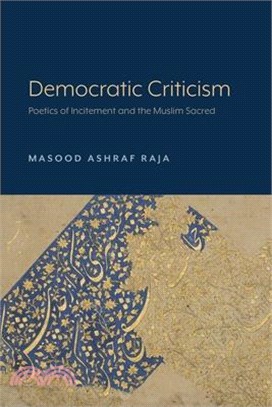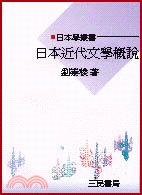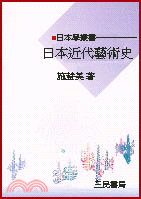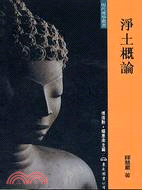Democratic Criticism: Poetics of Incitement and the Muslim Sacred
商品資訊
商品簡介
Capsule Description
Democratic Criticism encourages the Western readers to develop a deeper understanding of the meaning making processes of the Islamic world while at the same time encouraging the Muslim readers to read representations of Islam and the Islamic world with a more expansive understanding of the world.
Short Description
The poetics of incitement--a poetics found in texts originating in the West containing themes and representations of Islam hurtful to Muslims--became a "accepted, mainstream, and profitable genre of textual production" in the West. Raja's book urges a cosmopolitan mode of reading for metropolitan readers, one that permits Western readers to transcend local reading practices in order to, as best as one can, read from the point of view of the Other. The book also offers a critique of and intervenes in the debate between unbridled adherence to the absolute value of the right to free speech and the right of the reader to respond. All too often texts of the poetics of incitement are read from a universal, Western perspective by metropolitan academics, students, and the masses, without much thought given to how a Muslim reader. To remedy this, Raja offers and theorizes "democratic reading practices" as "a mode of training our students that emphasizes that engagement with texts is never really unmotivated." Becoming democratic readers, Raja argues, gives teachers and students a way, though impossible to completely perfect, of reading from the point of view of the Other. In doing so, Raja provides a genealogy of the Muslim Sacred thereby giving readers an overview of the history and specific knowledge that constitutes an average Muslim reader of these texts. Raja offers a form of critical practice that takes into account the specific modes of reading and practice of experiencing literary texts as informed by Islamic metaphysics, a way toward a cosmopolitan practice of reading.
Long Description
After Salman Rushdie published The Satanic Verses in 1988, the poetics of incitement--a poetics found in texts originating in the West containing themes and representations of Islam hurtful to Muslims--became an "accepted, mainstream, and profitable genre of textual production" in the West. Production of such texts intensified after the attacks of 9/11. Raja's book urges a cosmopolitan mode of reading for metropolitan readers, one that permits Western readers to transcend local reading practices in order to, as best as one can, read from the point of view of the Other.
The book also offers a critique of and intervenes in the debate between unbridled adherence to the absolute value of the right to free speech and the right of the reader to respond, taking as a starting assumption that the lack of understanding of Muslim responses to the poetics of incitement in the West is the result of a lack of cross-cultural knowledge; metropolitan universities often do not teach the proper social, historical, and religious context required for effectively reading these texts with any form of cultural knowledge, knowledge that is taught and taken for granted when reading "canonical" works of Western literature--all too often texts of the poetics of incitement are read from a universal, Western perspective by metropolitan academics, students, and the masses, without much thought given to how a Muslim reader, whose subjectivity was formed by a different set of sociohistorical-religious conditions, would consume (and be affected negatively by) these texts.
To remedy this, Raja offers and theorizes "democratic reading practices" or "a mode of training our students that emphasizes that engagement with texts is never really unmotivated." Becoming democratic readers, Raja argues, gives us a way, though impossible to completely perfect, of reading from the point of view of the Other. In doing so, Raja provides a genealogy of the Muslim Sacred in order to "introduce the reader to the basic tenets of Islam, with a certain degree of temporal and spatial specificity, and to then elaborate on how the Muslim sacred interacts with modernity and its place in the current regime of neoliberal capital," thereby giving readers knowledge of the history and specific knowledge that constitutes an average Muslim reader of these texts, a subject who should be imagined and empathized with when those in the West read works of the poetics of incitement. Raja offers a form of "critical practice that would, at least, attempt to take into account the specific modes of reading and practice of experiencing literary texts as informed by Islamic metaphysics," a way toward a "cosmopolitan practice of reading."
In advocating for a sensitive democratic criticism defined by cosmopolitan reading practices, Raja problematizes the debate between absolute, unquestioned free speech (the right of the writer) and the right of the reader to respond. Prime focus is placed on the response to The Satanic Verses in both the West and the Muslim world, along with an analysis of Rushdie's defense of his work, a defense that reveals a lack of care for the Other, one underwritten by an absolute adherence to free speech in spite of the material harm caused by the novel and other deployments of such a poetics. The book ends with a discussion of Iqbal and Mawdudi--two Muslim literary figures--and a discussion of democratic modes of critical reading in Pakistan, for it is not only readers in the West who have much to learn in terms of developing critical reading capacities; all readers can benefit from transcending their limited historical subject positions.
The book will be a helpful tool in creating reading practices that allow both teachers and students of literature to transcend their mode of reading as universal and to read from the perspective of the Other, for teaching and reading textual examples of the poetics o
主題書展
更多書展本週66折
您曾經瀏覽過的商品
購物須知
外文書商品之書封,為出版社提供之樣本。實際出貨商品,以出版社所提供之現有版本為主。部份書籍,因出版社供應狀況特殊,匯率將依實際狀況做調整。
無庫存之商品,在您完成訂單程序之後,將以空運的方式為你下單調貨。為了縮短等待的時間,建議您將外文書與其他商品分開下單,以獲得最快的取貨速度,平均調貨時間為1~2個月。
為了保護您的權益,「三民網路書店」提供會員七日商品鑑賞期(收到商品為起始日)。
若要辦理退貨,請在商品鑑賞期內寄回,且商品必須是全新狀態與完整包裝(商品、附件、發票、隨貨贈品等)否則恕不接受退貨。
























